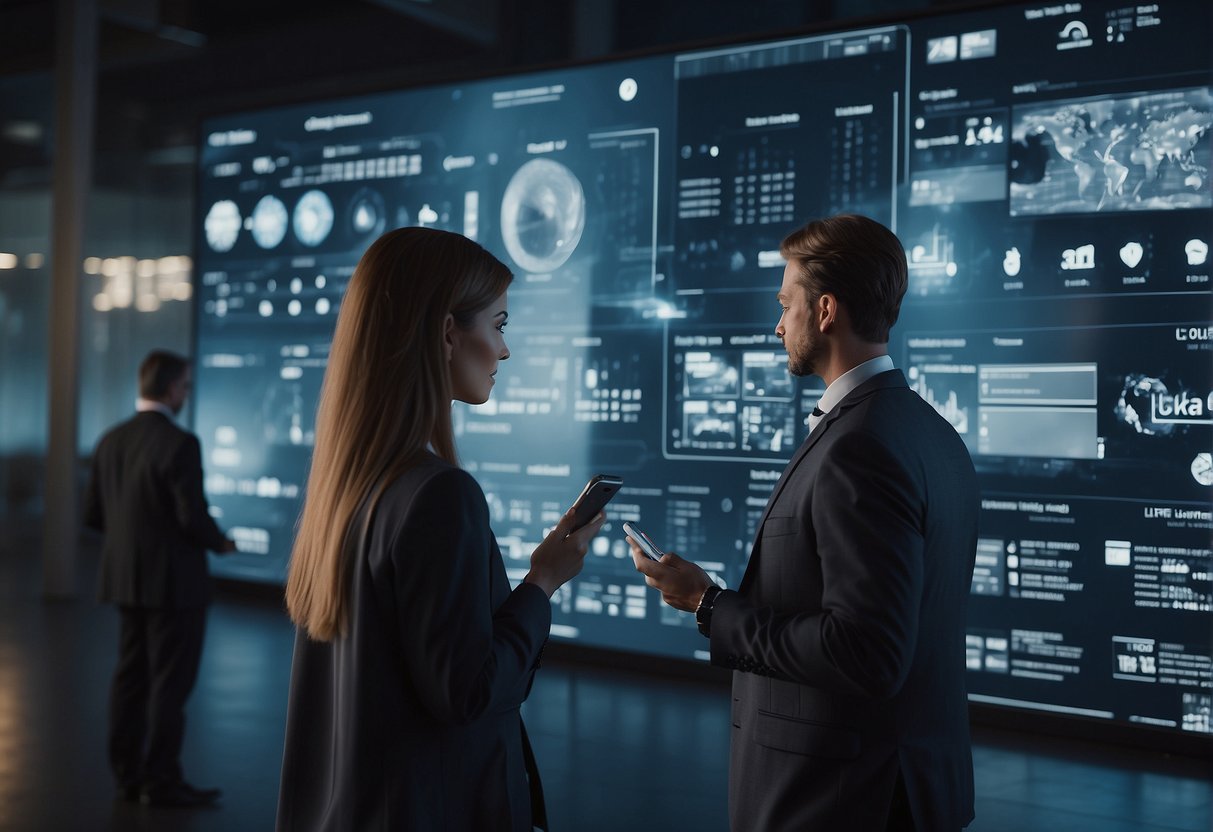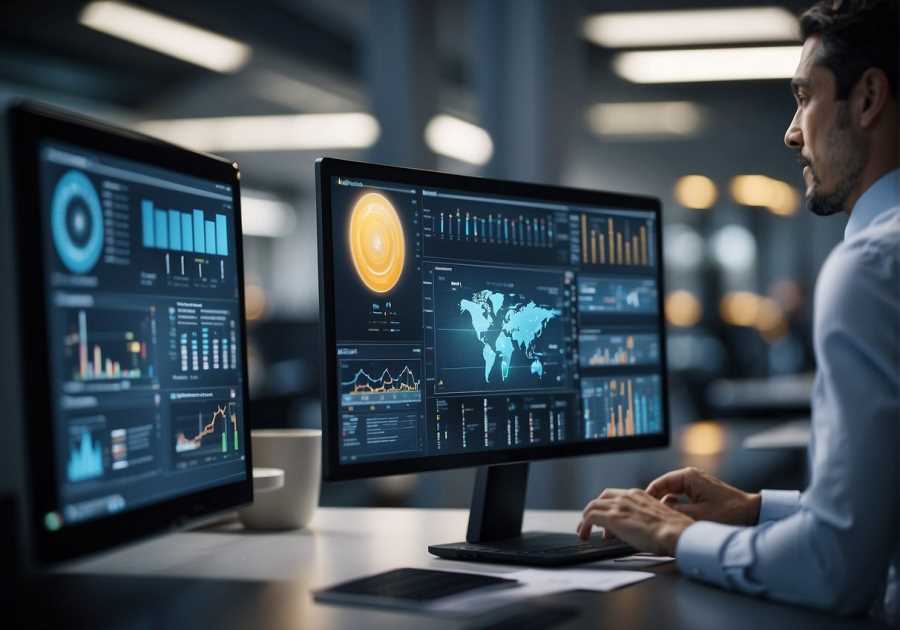Artificial Intelligence Influencer: Revolutionizing Social Media Strategies
The landscape of influencer marketing is on the cusp of a transformative shift with the advent of artificial intelligence (AI) influencers. These digital avatars, powered by advanced AI technologies, are forging new pathways in the realm of social media and advertising. Unlike traditional human influencers, AI influencers are meticulously crafted entities designed to engage with real-life audiences, bringing a blend of consistency, scalability, and control that human influencers cannot always guarantee.

The evolution of AI in influencer marketing is not only altering how brands approach campaigns but also revolutionizing the selection process of influencers themselves. AI technologies enable businesses to analyze vast amounts of data to identify the most effective influencer personalities and strategies for their target audience. Moreover, AI-driven tools are simplifying campaign management and analytics, allowing for real-time adjustments and data-driven decision-making. As these AI personalities grow more sophisticated, they begin to tackle the nuanced interactions and content creation that once required a human touch, adapting seamlessly to the changing demands of marketing strategies.
Key Takeaways
- AI influencers represent a significant innovation in marketing, combining brand control with audience engagement.
- The use of AI in marketing is streamlining influencer selection, campaign management, and performance analysis.
- As AI influencers evolve, they present both opportunities and challenges for the traditional influencer marketing ecosystem.
Evolution of AI in Influencer Marketing
With the advancement of technology, artificial intelligence (AI) has made a significant impact on influencer marketing, reshaping the way brands connect with their audience and altering the influencer landscape with the advent of virtual influencers.
Rise of Virtual Influencers
Virtual influencers, computer-generated characters powered by AI, have emerged on social media platforms, garnering significant followers and engagement rates comparable to human influencers. Lil Miquela, created by Brud, serves as a prime example with over a million followers on Instagram. She exhibits compelling human-like characteristics and endorses various fashion labels, blending the line between reality and digital fabrication.
The creation of Lu do Magalu, the virtual ambassador for the Brazilian retail chain Magazine Luiza, further exemplifies this trend. She interacts with customers, provides shopping recommendations, and represents a unique blend of marketing intelligence and personable interaction.
Historical Milestones
The influencer market has historically relied on human influencers, but AI has introduced a new paradigm.
- 2016: Introduction of Lil Miquela, sparking conversations about the possibilities of virtual influencers.
- 2018: Advancements in AI allow for more sophisticated and interactive virtual characters.
- 2020: These AI influencers begin to enter mainstream marketing campaigns and collaborate with big brands.
The strategic deployment of AI influencers like Miquela and Lu do Magalu by companies like Brud and Magazine Luiza represents the adaptability and innovation within the influencer marketing sector. AI, while still in its relative infancy in this domain, has already made discernible strides, signaling an exciting future for AI's role in influencer marketing.
AI Technology in Influencer Selection
Artificial Intelligence (AI) is transforming how brands identify and select digital influencers. By leveraging AI tools and data analytics, companies can make data-driven decisions, ensuring that they partner with influencers who can best meet their campaign objectives.
Predictive Analytics and Targeting
AI integrates predictive analytics to forecast potential influencer performance. These forecasts are based on historical data and machine learning algorithms which analyze patterns of engagement, audience sentiment, and content relevancy. Brands can use this information to target influencers whose audiences align closely with their desired customer profile, thereby increasing the likelihood of campaign success.
Data-Driven Decision Making
The decision-making process in influencer selection is enhanced by AI-driven data analysis. Algorithms can process a vast array of metrics, such as engagement rates, conversion potential, and past collaboration outcomes. This analysis allows marketing teams to select influencers with a proven track record, reducing the risks associated with influencer partnerships and maximizing return on investment.
Creating AI Personalities
When it comes to creating AI personalities, two critical components are the creation of CGI and digital avatars and the development of advanced content creation techniques. These elements help creators bring virtual influencers to life, enabling them to participate in a variety of media from marketing to entertainment.
CGI and Digital Avatars
Computer-generated imagery (CGI) serves as the foundation for crafting digital models that resemble real human beings or fantastical creations. Designers meticulously sculpt features, define textures, and simulate physical laws to give these entities a sense of depth and realism. Virtual influencers, as seen in Dataconomy's article, combine these technologies to produce figures that can attract substantial followings on social media platforms. Creators rely on sophisticated software to ensure that each avatar can express emotions, interact with real environments, and even mirror human mannerisms with surprising accuracy.
Content Creation Techniques
The influencers' ability to engage with their audience does not solely hinge on their realistic appearance; it significantly depends on their content creation capabilities. Modern AI tools facilitate the generation of dialogue, responses to trends, and more. As depicted in Tech Pilot's guide, these virtual entities can be tailored to target demographics, making them versatile tools in any marketer's arsenal. With the help of complex algorithms, AI influencers can create content that resonates with viewers, thereby establishing a convincing social media presence that rivals that of human content creators.
Campaign Management and Analytics
In the dynamic world of influencer marketing, artificial intelligence plays a pivotal role in refining campaign management and sharpening analytics. Tools powered by AI are central to dissecting vast data sets to assess campaign performance and to parse through engagement metrics for a clear picture of return on investment (ROI).
Measuring Campaign Performance
The crux of measuring campaign performance lies in the ability to track an array of metrics that outline the campaign's impact. AI-driven platforms can automatically quantify key performance indicators (KPIs), such as reach, impressions, and click-through rates. These quantitative insights allow for a comprehensive understanding of how content fares across different audiences and channels. Platforms utilizing AI, like Castmagic, are essential for processing big data to reveal the success rate of marketing strategies.
Engagement and ROI Analysis
AI tools transcend basic engagement metrics by incorporating advanced sentiment analysis. This translates to not merely counting likes and comments but interpreting the emotional reactions of the audience. The ability to delineate positive, neutral, or negative sentiment gives marketers a nuanced understanding of audience reception.
For ROI analysis, artificial intelligence systems deploy predictive analytics and machine learning algorithms to drill down on conversions and sales data. This aids in constructing a clear alignment between influencer campaigns and actual revenue generation. Marketers leverage AI to identify not just short-term gains but to also forecast the long-term value that influencer collaborations can bring. Resources like the AI-powered analytics tool mentioned before, are key in correlating specific content features, like emoji usage and location tags, with consumer response and subsequent conversions.
Challenges in AI Influencer Marketing

While AI influencer marketing offers numerous opportunities for brands, it also presents unique challenges. Brands must navigate issues of authenticity and ethics to maintain trust with their audience.
Addressing Influencer Fraud
In the realm of AI influencer marketing, influencer fraud poses a significant challenge. Brands often rely on AI to identify potential influencers based on their reach and engagement. However, these metrics can be artificially inflated through the use of bots or purchased followers. It is crucial for brands to employ advanced AI-driven analytics to detect fraudulent activity and ensure they are investing in genuine influencers who truly resonate with their target audience.
Ethical Considerations
The ethical implications of AI in influencer marketing cannot be overlooked. While AI can assist in creating effective marketing strategies, there is a fine line between personalization and privacy invasion. Brands must establish ethical guidelines to govern the use of AI, ensuring consumer data is handled responsibly. Moreover, there is a need for transparent disclosure when AI-generated content is involved, as consumers have the right to know when they are engaging with AI-driven marketing tactics. This article from Forbes discusses the nuanced challenges that come with using generative AI in influencer marketing, highlighting the importance of maintaining ethical standards.
The Impact of AI on Social Media Platforms
The introduction of AI onto social media platforms has brought significant transformations in how content is delivered and consumed. It has altered the underlying algorithms and enabled the creation of innovative marketing strategies.
Algorithm Changes
Social media platforms, including heavyweights like Instagram and TikTok, leverage AI to modify their algorithms. These changes affect which content is displayed to users, prioritizing engagement through factors such as relevance and user interaction. AI's role in hashtags is also pivotal; it identifies trending topics and enhances content visibility by connecting users with similar interests.
New Marketing Strategies
AI catalyzes the development of new marketing strategies across social media. Brands capitalize on AI's data analysis capabilities to target audiences more precisely and generate content that resonates with their demographic. Moreover, AI tools streamline the management of marketing campaigns, including the scheduling of posts for optimal engagement.
Future Directions in AI-Driven Marketing
As marketing landscapes evolve, AI-driven marketing stands at the forefront, where predictive analytics and increased engagement rates are set to significantly disrupt the traditional approaches to digital marketing.
Emerging AI Technologies
Within the domain of AI technology, new developments are consistently surfacing. Noteworthy advancements include natural language processing (NLP) and machine learning algorithms that offer deeper insights into consumer behavior. These technologies empower marketers by providing highly targeted content strategies and efficient campaign management. For instance, AI tools capable of interpreting sentiment analysis can tailor marketing messages that resonate more strongly with diverse audiences, thus potentially improving engagement rates.
Predictions for the Influencer Economy
The influencer economy, already integral to digital marketing, is anticipated to undergo radical changes with AI integration. Predictive analytics will enable influencers and brands to identify trends before they surface, creating opportunities for first-mover advantages on new platforms and niches. This data-driven approach could also lead to a personalized matchmaking system between brands and influencers, ensuring higher engagement rates and ROI from marketing campaigns. Moreover, AI's increasingly sophisticated pattern recognition abilities might result in a seamless and more authentic integration of product endorsements into content that the audience values.
Business Strategies and Best Practices
Effective business strategies and best practices in the domain of artificial intelligence (AI) influencer marketing focus on maximizing the collaboration between agencies and brands while ensuring content review and compliance. These practices are vital for delivering insightful and targeted advertising content that meets set deadlines and deliverables.
Agency and Brand Collaborations
Agency and brand partnerships are quintessential in leveraging artificial intelligence for influencer marketing. Agencies provide expertise in AI tools that can identify potential influencer partnerships, predict trends, and optimize campaign effectiveness. Brands benefit from this by accessing nuanced insights into consumer behaviors and preferences, which can drive strategic decisions. It is imperative for both parties to establish clear communication channels and define responsibilities to streamline workflows and achieve unified goals.
-
Responsibilities:
- Agency: Offer AI-driven insights, set realistic deliverables.
- Brand: Align agency outputs with overall marketing objectives.
-
Workflow:
- Set clear deadlines.
- Maintain regular progress reviews.
- Use AI to adapt strategies in real-time.
Content Review and Compliance
Content review processes are enhanced significantly by AI, which can automate and scale the review of influencer content to ensure compliance with brand guidelines and advertising regulations. For marketers, leveraging AI ensures that deliverables fall within the stipulated legal and ethical boundaries. Automated systems can flag non-compliant content before it goes live, thereby preserving the integrity of the brand and mitigating risks.
- Best Practices:
- Implement AI-driven tools for real-time content analysis.
- Constantly update the compliance criteria in AI systems to reflect changing regulations.
- Develop standardized review protocols for efficiency.
By adhering to these strategies and best practices, agencies and brands can foster robust collaborations and maintain high standards of content and compliance in the dynamic landscape of AI-driven influencer marketing.
Frequently Asked Questions
The rise of AI influencers marks a transformative phase in digital marketing. These questions aim to demystify the nature and trajectory of AI influencers in this evolving landscape.
How are AI influencers impacting the digital marketing landscape?
AI influencers are reshaping digital marketing by offering consistent, scalable, and cost-effective engagement. They provide valuable data-driven insights for personalized campaigns, transforming how brands connect with their audience.
What steps are involved in creating an AI influencer?
Creating an AI influencer involves designing their unique persona, generating realistic digital imagery, and developing their communication using natural language processing. Brands collaborate with technologists and creative teams to ensure authenticity and relatability.
Who are some of the most prominent AI influencers today and what sets them apart?
Prominent AI influencers, such as Lil Miquela and Shudu, stand out due to their hyper-realistic appearances and distinct personalities which resonate with specific demographics. These AI entities often have their own compelling backstories and brand affiliations.
In what ways can AI influencers engage with audiences differently than human influencers?
AI influencers engage with audiences 24/7 without the constraints of human needs and availability. They can instantaneously process and react to trends and data, offering a level of interaction tailored to individual user preferences at an unparalleled scale.
What ethical considerations arise from the use of AI influencers?
The use of AI influencers raises ethical questions related to transparency, data privacy, and the potential for manipulating consumer decisions. Ensuring clear communication about the AI nature of these entities is crucial to maintain trust and integrity.
How might AI influencers evolve in the future of social media and entertainment?
AI influencers are likely to become more interactive and indistinguishable from humans, leveraging advancements in AI and virtual reality. This will expand their roles in social media, entertainment, and beyond, influencing the ways stories are told and experiences are shared.
.png)



